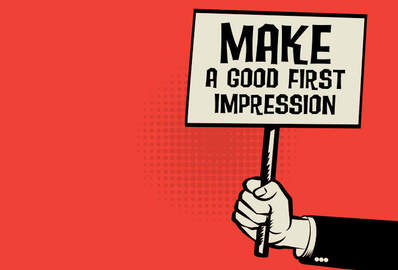|
First impressions are very important when meeting new people. If you're introduced to someone and you have big pimple on your nose, or happen to be wearing your dingiest clothes, it's likely you'll feel a bit self-conscious. Rumor has it that your shoes are the first thing people notice about you when you meet them. So, today's blog is how to make sure you give your poems good shoes! And I'm not talking about titles or first lines, either, although those are crucial elements. What I'm talking about is the first word of a poem. That's where a poem starts to really walk and maybe even run or dance. But whatever it's going to do, the first word is the cue to action. Let's look at some examples, starting with Emily Dickinson's famous poem, "The Chariot." The word "Because" is a powerful starting point, almost of an equivalent scope to a larger phrase, like: "In the beginning." The first word promises something, and what it promises is: explanation. T.S. Eliot's "The Wasteland" starts off with the hopeful word "April" and then descends straight into Hell. Diane Seuss's poem "Self-Portrait with Sylvia Plath’s Braid," (linked above) starts with the word "Some" and proceeds to carve out a rebellious portrait of individuality. Robert Frost's, "The Road Not Taken" starts with the decision-word: "Two," and this initiates the reader into the poem's theme of choices. I could go on and on, but you get the idea: first words, like first impressions, set expectations and tone. They make moods. And if you get the first word wrong, it's likely the rest of the poem will follow suit. For example, there's a Ted Hughes poem called, "Buzz in the window" that starts with the word, "Buzz." Never mind the useless repetition, the word is so arresting and exciting that it should lead into something spectacular, but instead, the poem continues: "Fly down near the corner..." If you set expectations high with your first word, you have to start delivering fast. So keep that in mind. Hopefully these examples spark some ideas! Meanwhile, if you find these blog-posts useful, please consider buying me a spot of coffee through the link below! I could really use it! You can also donate here: PayPal [email protected] And if you'd like some expert help with editing or polishing your poems, or you just want a bit of feedback, hit the links below. Or email me at [email protected] I look forward to reading your work! Categories All
0 Comments
Leave a Reply. |

